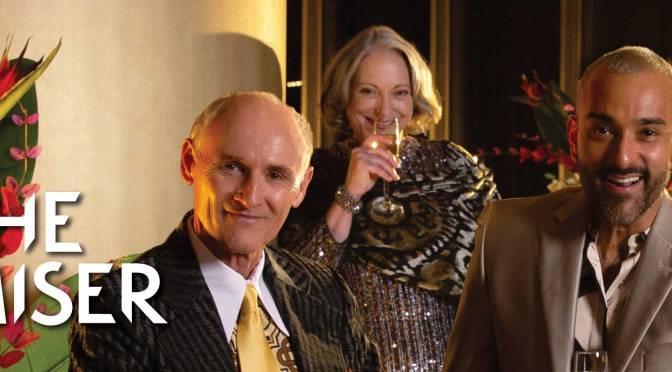Black Friday has come and gone, leaving a trail of vinyl & silicon breadcrumbs at indie record stores. And, as typical of previous years, there’s been more than a smattering of fine jazz released, as the archives of artists, legendary venues and European broadcasters give up their secrets to the delight of listeners worldwide. Four quite special sets caught my ear this time around . . .

Resonance Recordings continues its deep dive into the music of guitarist Wes Montgomery; Maximum Swing: The Unissued 1965 Half Note Recordings catches him live in New York City, backed by the Wynton Kelly Trio. Pianist Kelly and drummer Jimmy Cobb were key players on Miles Davis’ game-changing Kind of Blue; teaming with a round robin of bassists that includes once-and-future Miles sidemen Paul Chambers and Ron Carter, they launch plenty of lean, thrusting grooves and hypnotic vamps that give Montgomery room to take off. And does he ever: whether on untitled 12-bar jams, highlights of Miles’ book like “Impressions” and “No Blues”, standards from Broadway (“All the Things You Are”) and bebop (“Birks’ Works” and “Cherokee”), or his great original “Four on Six”, Wes is endlessly inventive, spinning out fleet, angular licks, spiky chordal excursions and his trademark octave lines in fluent, inspired fashion. The shape-shifting finale “Star Eyes” is a real highlight, but every track has its thrills, showing that this group’s classic album from the same year, Smokin’ at the Half Note, was only the tip of the iceberg.

Montgomery isn’t the only jazz legend whose riches producer Zev Feldman has been excavating; released on Elemental Music, Tales: Live in Copenhagen 1964 marks his 11th cache of buried treasure from Bill Evans (the main pianist on Kind of Blue). Plowing his own furrow after leaving Miles, Evans steered the piano trio format away from solos with backup toward a conversation of equals, an ideal he pursued the rest of his life. This album presents that ideal in perhaps its purest form; caught on tape by Danish radio and TV, bassist Chuck Israels and drummer Larry Bunker drive the music onward as much as their nominal leader, while Evans complements his partners’ vibrant ideas with shimmering backing and radiant flights of fancy. Multiple takes give up the secrets of pensive weeper “My Foolish Heart”, bittersweet waltz “How My Heart Sings” and speedy flagwaver “Sweet and Lovely”, grounded in a supple rhythmic bedrock, unlocking the melodic and harmonic possibilities only master players in tune with each other can find. Immediately, immensely appealing, but with subtle delights galore beneath the surface.

From the 1950s on, vibraphonist Cal Tjader won plaudits for his forward-looking emphasis on Latin rhythms – though recognition of his innovations faded as the sound became more mainstream. Feldman’s Jazz Detective label aims to right the balance with Catch The Groove: Live at the Penthouse 1963-67 — and succeeds brilliantly! In all six sets (originally broadcast from the Seattle club), Tjader lays down his jazz credentials through standbys like Ellington’s “Take The A Train”, Miles’ “On Green Dolphin Street” and Milt Jackson’s “Bags’ Groove”, then cooling down to a warm hush on ballads “It Never Entered My Mind” and “The Shadow of Your Smile”. But when percussionist Armando Peraza (later the beating heart of Carlos Santana’s most popular bands) brings the rhythms to a boil on “Morning of the Carnival”, “Cuban Fantasy” and Tjader originals “Davito” and “Leyte”, the results are spectacular! Throughout, the playing of Tjader and his sidemen is solid, strong and tasty — even heating up the Association’s “Along Comes Mary” for an unexpectedly spicey closer.

Before his passing earlier this year, one of piano giant Ahmad Jamal’s last public acts was to authorize Jazz Detective’s releasing three double-disc sets from the Penthouse archives; the last in the series, Emerald City Nights: Live at the Penthouse 1966-68, is another towering monument to his unique blend of conceptual chops and melodic mass appeal. Teaming with Jamil Nasser on bass and Frank Gant on drums, Jamal swiftly grasps the essence of every tune, then unfurls spontaneous variations that polish their inherent possibilities to a persistent dazzle. Catchy rhythmic vamps, daring harmonic reinventions, ample space for Nasser and Gant to strut their stuff — it’s all here, along with heaping helpings of precision filigree and gutbucket swing. You’ll never quite hear chestnuts like “Misty” and “Autumn Leaves” the same way again — and when Jamal turns the samba “Quiet Nights of Quiet Stars” into an uptempo barnburner and backspins a ballad like “Where Is Love” into hipster territory, you’re gonna want more! (Good thing there’s three volumes, eh?)

Beyond Feldman’s extensive explorations, we’ve also been gifted with the third in a series of Brubeck Editions, “new, officially authorized releases of great music featuring Dave Brubeck and his many musical collaborators”. The Dave Brubeck Quartet Live from the Northwest, 1959 gathers hotel and college dates from Multmonah, Oregon recorded by legendary engineer Wally Heider — although, with the game changing Time Out album in the can but as yet unreleased, there was nary a 5/4 tune on the horizon. Instead, Brubeck leans into standards and originals where he can sound like a one-man big band with his two-fisted block chords, launch into spontaneous counterpoint with saxophonist Paul Desmond, or ride the dynamics of “Basin Street Blues”, “These Foolish Things” and “The Lonesome Road” from a whisper to a roar — all hurtled along by the nimble propulsion of bassist Eugene Wright and drummer Joe Morello. The whole set is a marvelous example of four talents locked onto each other’s wavelengths, working as one; liner notes from Brubeck’s sons Darius, Dan, Matt and Chris offer up rich insights to underline the virtuoso interplay and effortless momentum on display.
— Rick Krueger




















You must be logged in to post a comment.